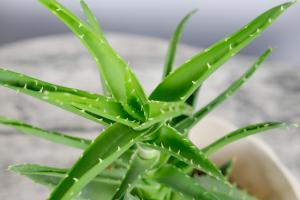Is Laundry Water Good for Plants?
As an eco-conscious gardener, you may wonder about reusing household water to nourish your plants. One such source of water that comes to mind is laundry water. Also known as gray water, it is the wastewater that comes from your washing machine after a cycle, which typically contains dirt, soap, and fabric softener. But can you use laundry water safely and effectively on your plants? Let's explore.
The Pros and Cons of Using Laundry Water on Plants
Like any other water source, there are both advantages and disadvantages to using laundry water on plants. On the plus side, reusing laundry water can conserve fresh water, especially if you are doing laundry frequently. Gray water can contain small amounts of nutrients such as phosphorus and potassium, which can benefit your plants. Additionally, using laundry water may discourage the buildup of harmful salts and minerals in your soil since it's not as high in mineral content as tap water. However, there are downsides to consider, too. Laundry water can contain harmful chemicals or pathogens, especially if you use detergents or fabric softeners that are high in synthetic fragrances or antibacterial agents. The soap and fabric softeners in laundry water can also strip plants of their natural oils, which can lead to stunted growth or other issues.
How to Safely Use Laundry Water on Plants
If you decide to experiment with gray water for your plants, here are some tips to keep in mind. Investing in a laundry-to-landscape system can be a safe and convenient way to reuse gray water on your landscape without harming your plants. This system allows you to divert laundry water to irrigation tubing that goes directly to your plants' root zones, bypassing any contact with the foliage or soil surface. On the other hand, if you don't want to go through the trouble of installing a new system, you can still use laundry water on your garden, but be sure to only use it to water non-edible plants like shrubs and flowers. You should also avoid using laundry water on plants that grow in sandy soil, as the high sodium content in laundry water can damage their roots. Additionally, opt for eco-friendly and fragrance-free laundry detergents and fabric softeners that are safe for the environment and your plants.
Summary
In conclusion, reusing gray water for your plants can be a sustainable and cost-effective practice. However, it's important to be aware of the potential risks and benefits and follow safe guidelines when doing so. Opt for natural and eco-friendly laundry detergents and fabric softeners, and avoid using laundry water on edible plants or plants that grow in sandy soil. With careful consideration, you can enjoy the benefits of gray water while keeping your garden healthy and thriving.

 how many times do yo...
how many times do yo... how many planted tre...
how many planted tre... how many pine trees ...
how many pine trees ... how many pecan trees...
how many pecan trees... how many plants comp...
how many plants comp... how many plants can ...
how many plants can ... how many plants and ...
how many plants and ... how many pepper plan...
how many pepper plan...






























